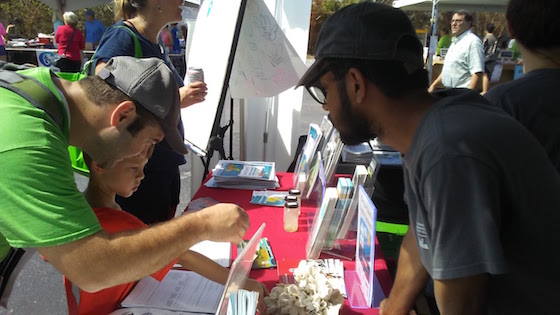My work with the University of Georgia Marine Extension and Georgia Sea Grant as part of my Community Solutions Program Fellowship mostly involved creating public programs, working with the communications team, and coming up with a strategy for international program development. During my fellowship, I split my time between the UGA Marine Education Center and Aquarium on Skidaway Island and the Marine Extension and Georgia Sea Grant office on the UGA campus in Athens. I’m now working on my follow-up project in Bangladesh.
While participating in programs led by Marine Extension and Georgia Sea Grant, I learned about a variety of research, education and outreach projects, including the development and testing of Turtle Excluder Devices (TED) used in shrimp trawlers, citizen science-based research and outreach on black gill in Georgia shrimp, and community outreach focused on coastal hazards and resilience. I had the opportunity to share this information with coastal communities while contributing to public programs on Skidaway Island and in Athens.
The most rewarding aspect of my work with Marine Extension and Georgia Sea grant was recognizing the similarities between Low Elevation Coastal Zone (LECZ) communities in the Southeast U.S. and those in South Asia on the Indian Ocean in terms of their vulnerabilities to coastal hazards. The Bay of Bengal region of South Asia, where I’m from, is severely vulnerable to global ecological crisis and climate change. What I can tell from my experience is that similar challenges exist to fostering community stewardship of coastal and marine ecosystems in these two regions.
One of my projects involved developing a new education program targeting underserved communities in Chatham County. While reaching out to families in Savannah to learn about how they interact with the natural world, the challenges and concerns they shared were very relatable to me. The feedback mostly highlighted the lack of access to nature by marginalized communities, which is something I’m also seeing in the rapidly urbanized coastal regions of South Asia.
My project with Mona Behl, associate director of Georgia Sea Grant, involved assessing the plausibility of developing a program modeled after the Sea Grant program that could be implemented in Bangladesh and other Bay of Bengal countries; Myanmar, India, and Sri Lanka. This assessment involved examining and comparing socio-ecological challenges, policy and legal frameworks, institutional structures, and preparedness of communities and coastal Georgia and South Asia. We are confident that the Sea Grant model and other programs in the U.S. engaged in coastal resilience have a lot to gain from understanding the experience of South Asian communities and vice versa.
————-
Note: The Georgia Sea Grant College Program serves as one of several agencies that accept visiting fellows through the Bureau of Educational and Cultural Affairs (ECA) of the U.S. Department of State’s Community Solutions Program (CSP) fellowship. The fellowship sponsored by ECA-State is designed to help communities around the world while benefiting the Community Based Organizations, nonprofits and government offices that actively engage in community development projects in the United States.

